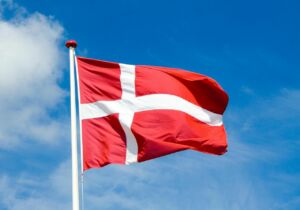Opinion
Red, blue or green
This article is more than 10 years old.
Denmark’s North Atlantic parts could have a big say in this years presidential election.

(photo: Jacob Bøtter) Denmark’s political future likely to be determined by its Atlantic islands
The election campaign is rolling out all over the country.
And already it has to some extent turned into a presidential election between Mrs Helle Thorning Schmidt, the present PM, and Mr Lars Løkke Rasmussen, the former PM.
Show-stealers
Taken into consideration that the electorate has ten different parties to choose from, it is already clear the two of them have stolen the show. The press corps follows their every move, analyses their body language and actually listens to what they say.
Both are stretching out across the middle ground where they assume the 20 percent of still undecided voters are. The messages are close to identical since none of them can hope for a single party majority and will have to create coalitions for – or at least not against – any of them taking office.
Down to the wire
It is expected to be a close race. In the polls just ten days ago, the blues would have appeared to have it by a comfortable margin, but the latest opinion polls indicate a gain by the red bloc.
And it’s most probably not down to the content of their policies, but because the PM has a strong, presidential if you like, profile.
Sharp dresser
Mrs Helle Thorning Schmidt is well-spoken, gives a good personal performance and is a very presentable, tall woman. She looks good at international photo calls – a smart red dress among the suits – and she’s clearly in command of the issues.
Dogged by accusations of broken promises made in her last campaign, she will learn from that, but then again, this is Denmark and a party manifesto can never be fully realised in a coalition government, and most of the electorate understand that.
The Nixon effect
Mr Lars Løkke Rasmussen, the former PM, is also a very competent politician who is highly experienced in public affairs.
However, he is still vulnerable to criticism over his household administration and manners, and against Thorning Schmidt, he is (if you excuse the comparison to the 1960 US presidential race) Nixon to her Kennedy.
Meanwhile, the rest of the party leaders fight for airtime, and we of course expect to hear more and more desperate proposals over the coming week.
The Atlantic allies
Should the election result in a cliffhanger, then the green factor could be decisive. Four seats in parliament are allocated to the North Atlantic parts of the kingdom: two in the Faroe Islands and two in Greenland. Normally they don’t interfere in domestic politics in Denmark, but they have shown in the past that they can take responsibility when it is needed or they are given the chance.
It is expected that three of the four may be in favour of the red bloc, so if the outcome hangs in the balance, the next government could be neither red nor blue, but green. Because such support does not come cheap.
About










































